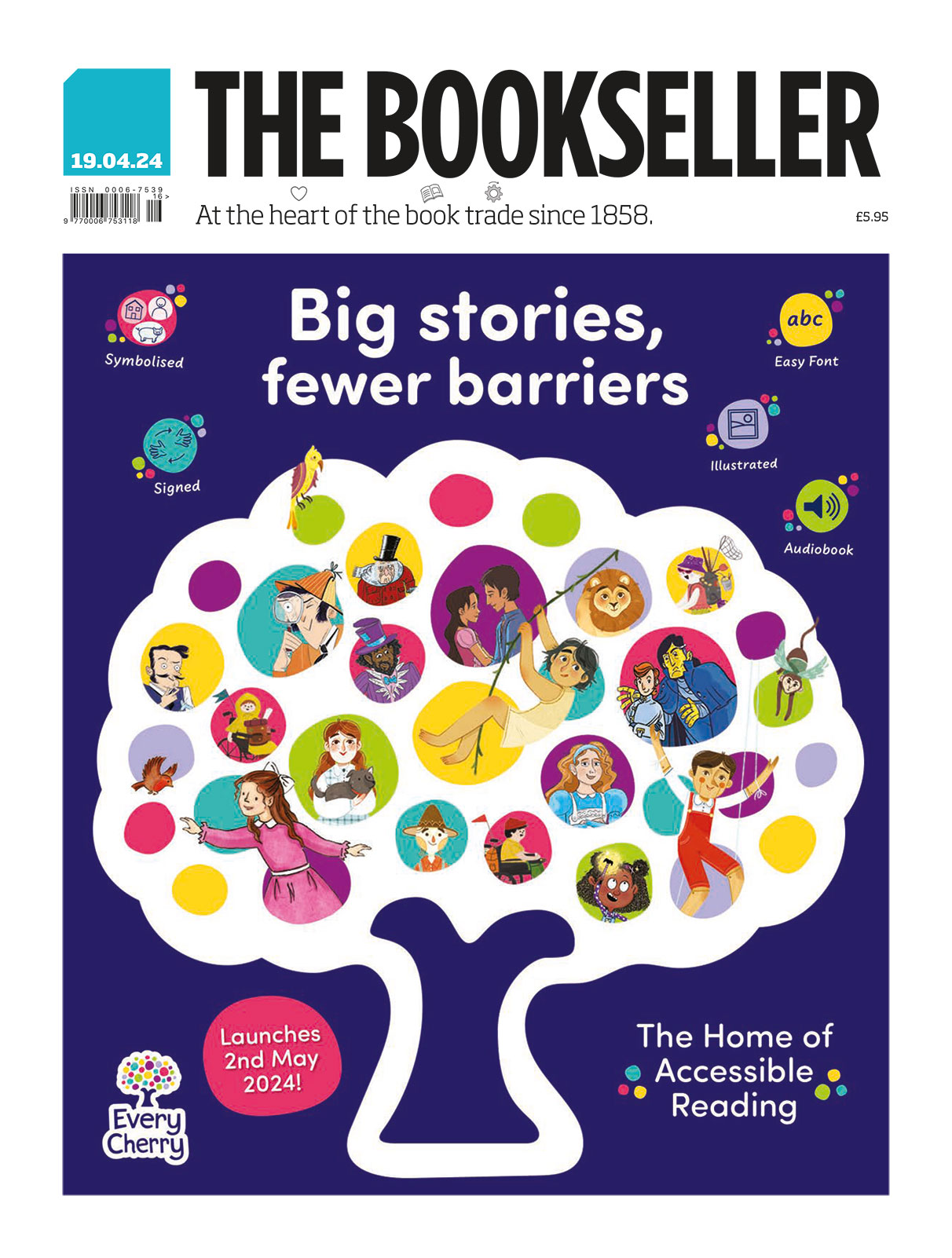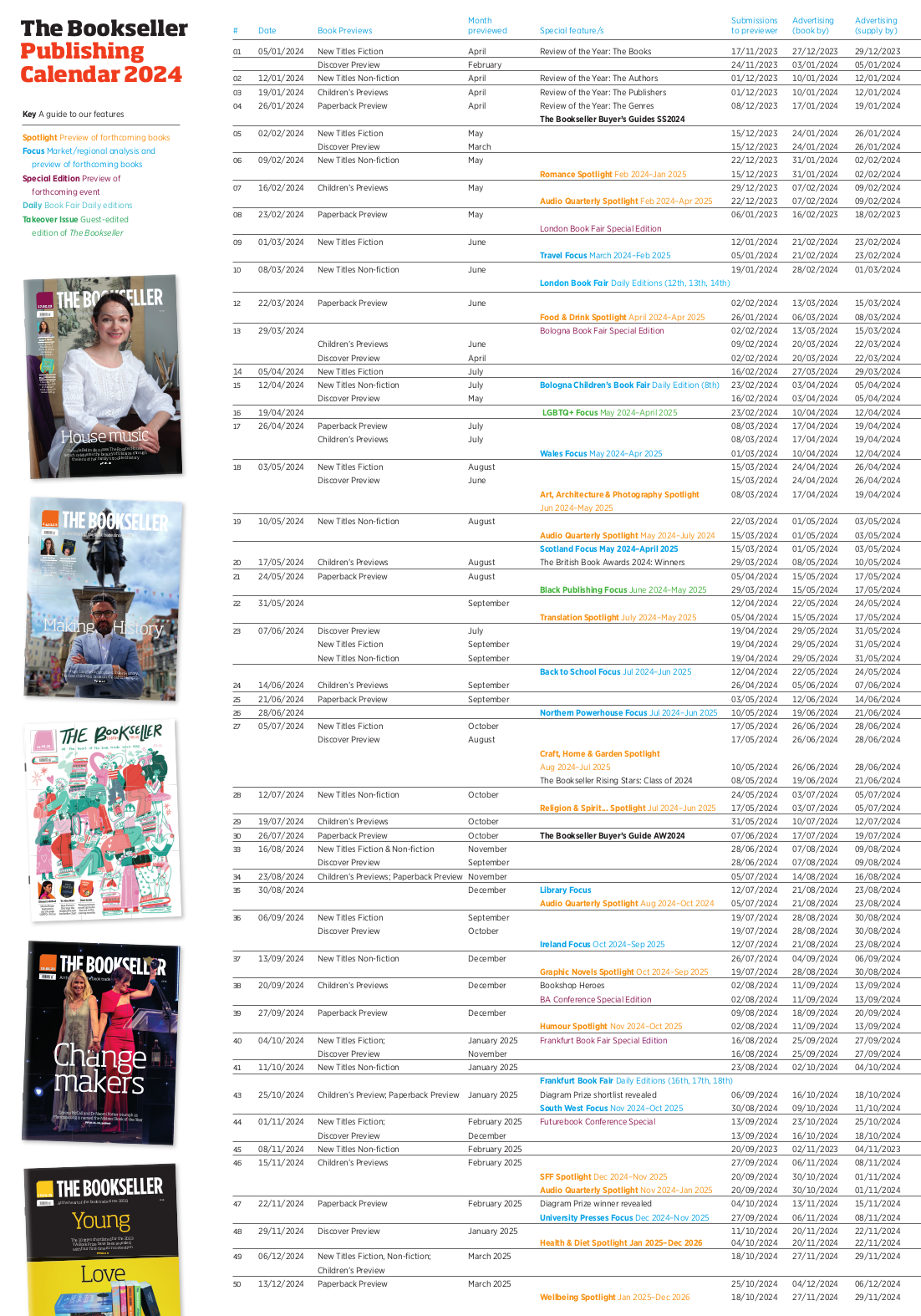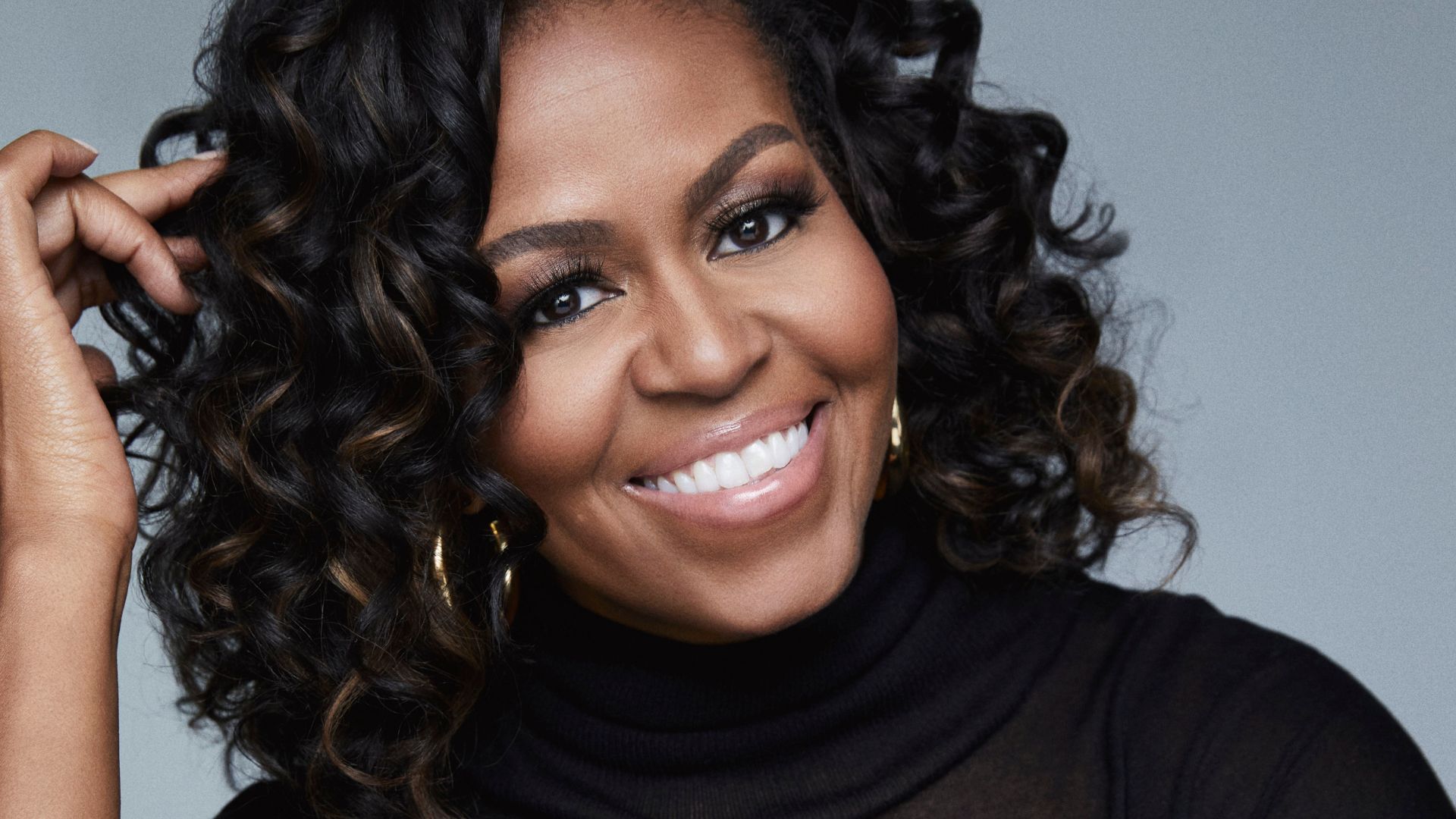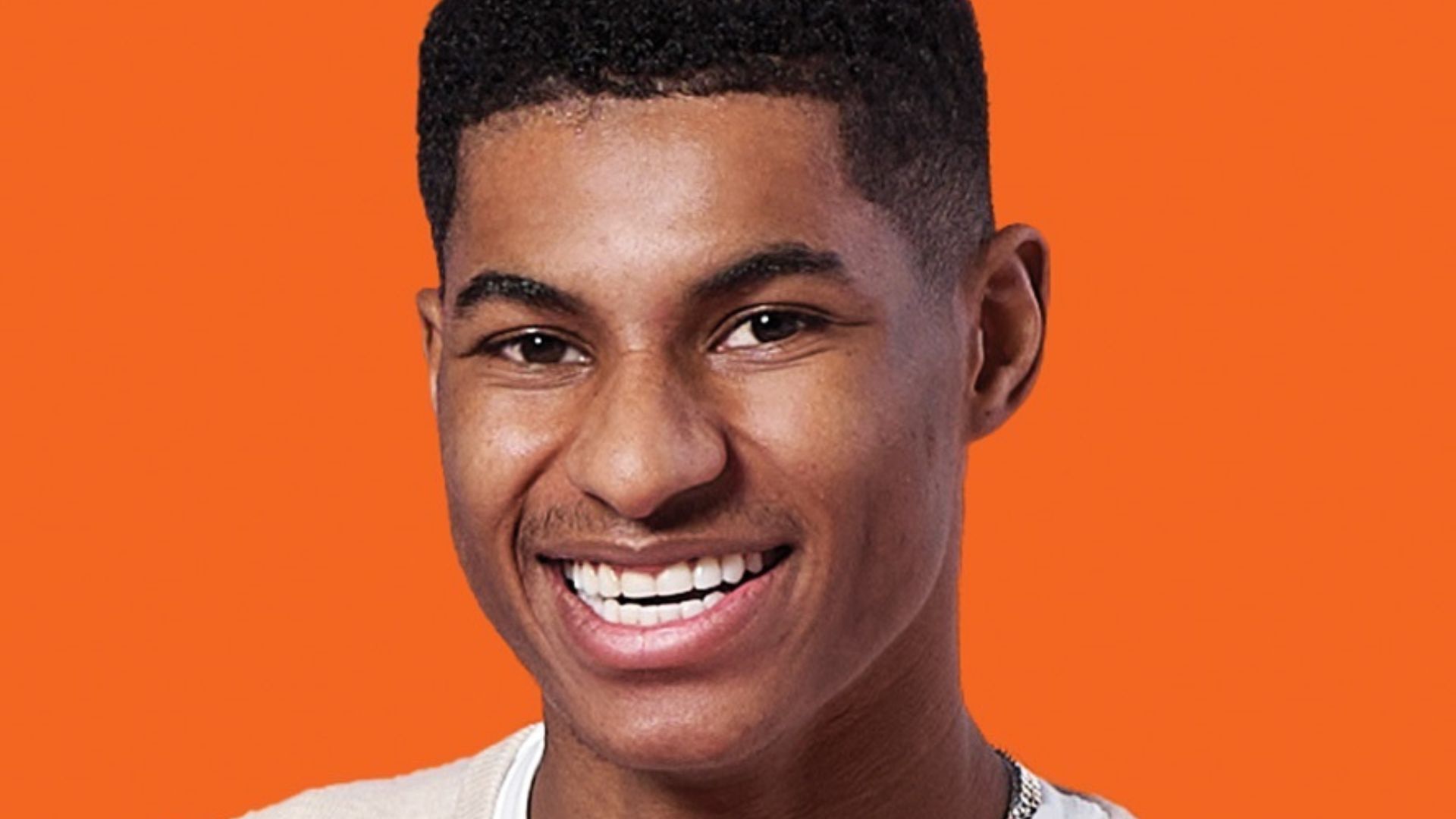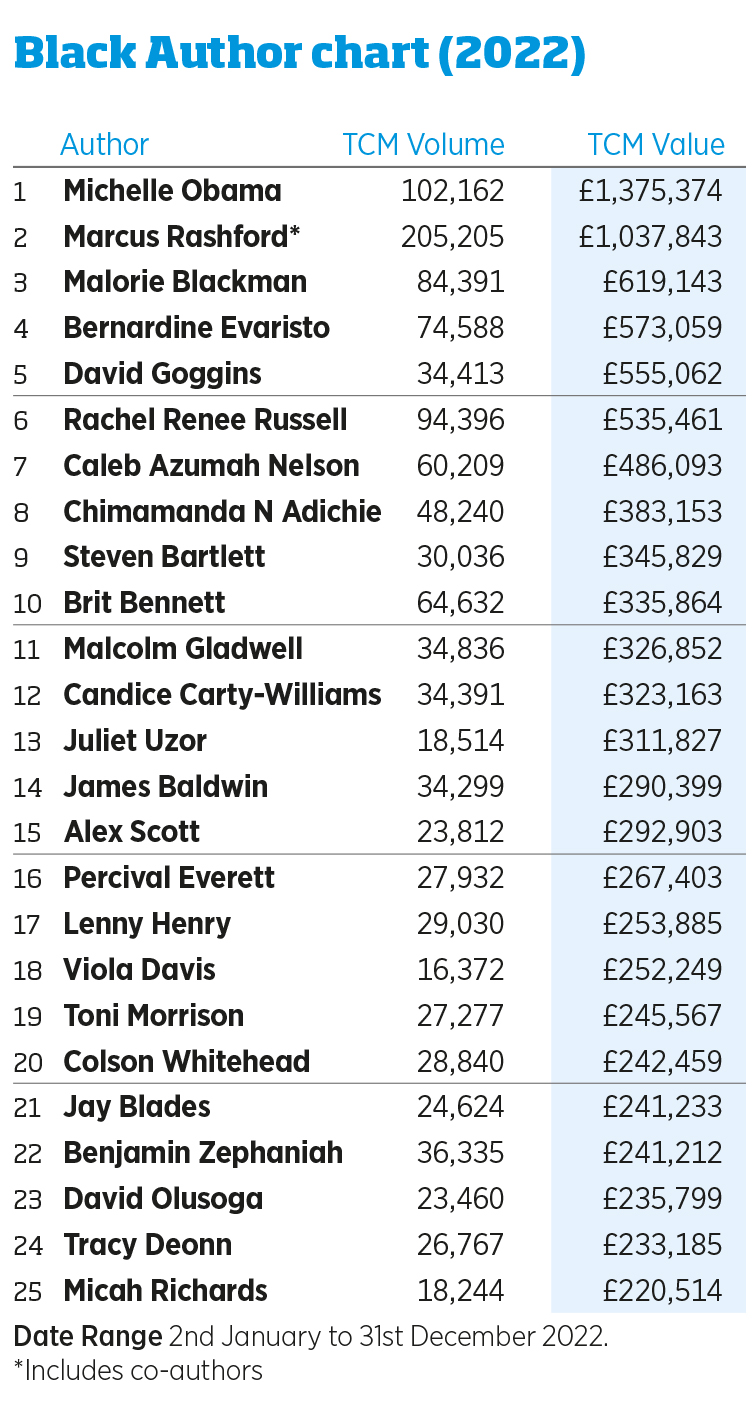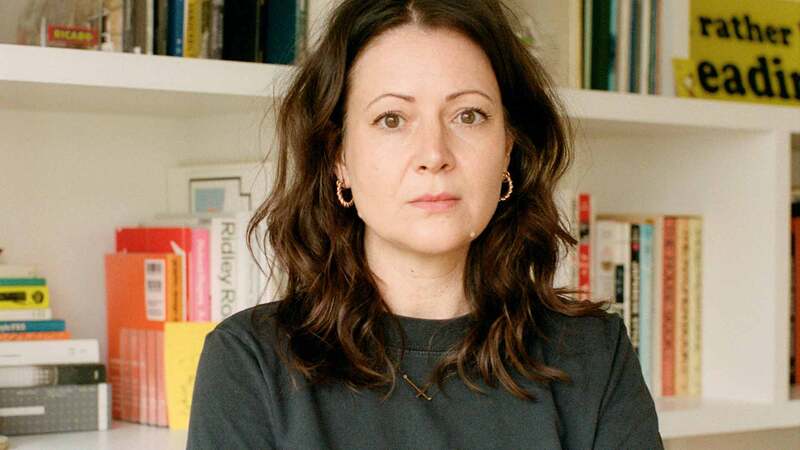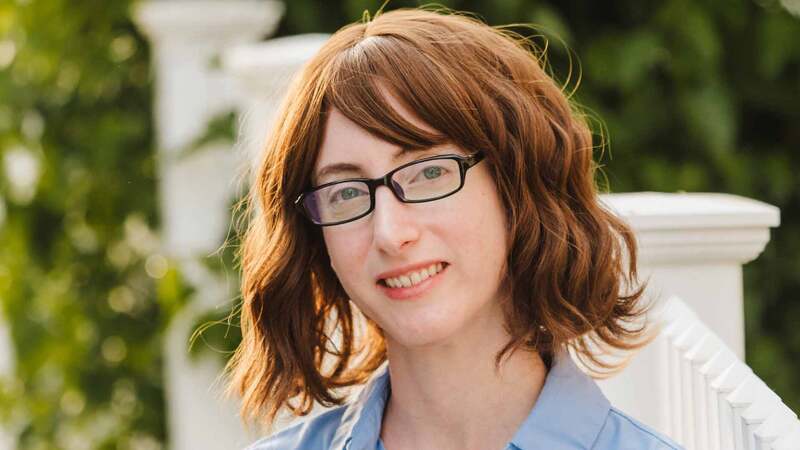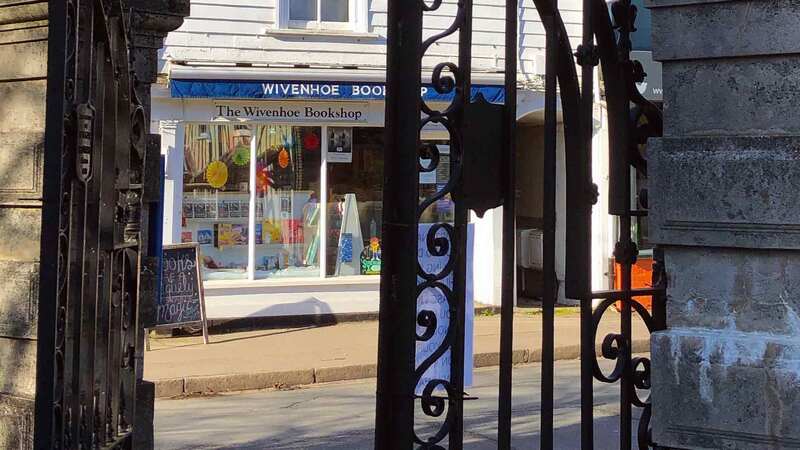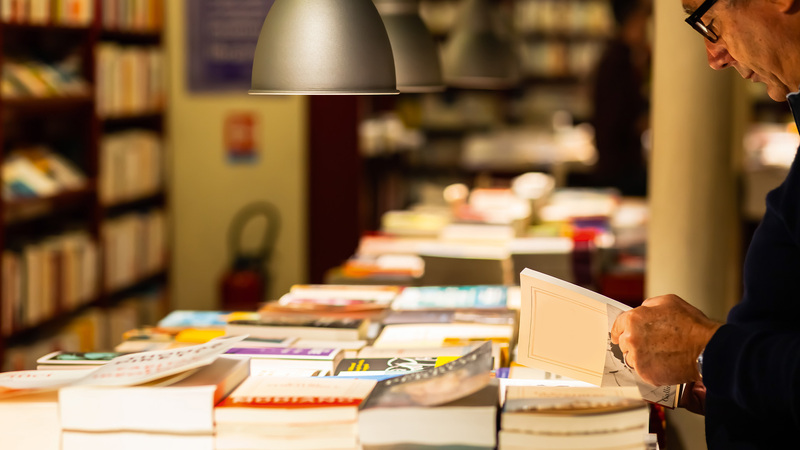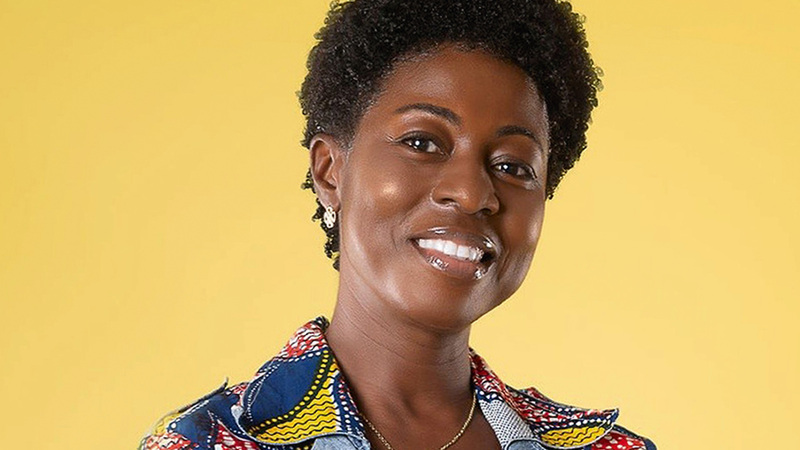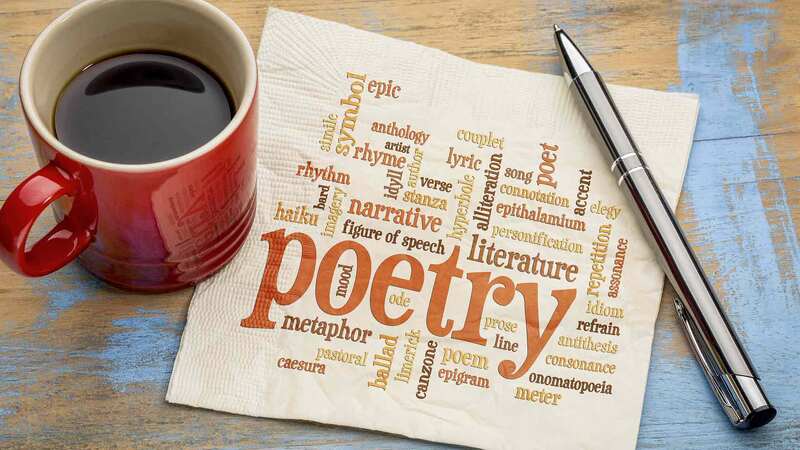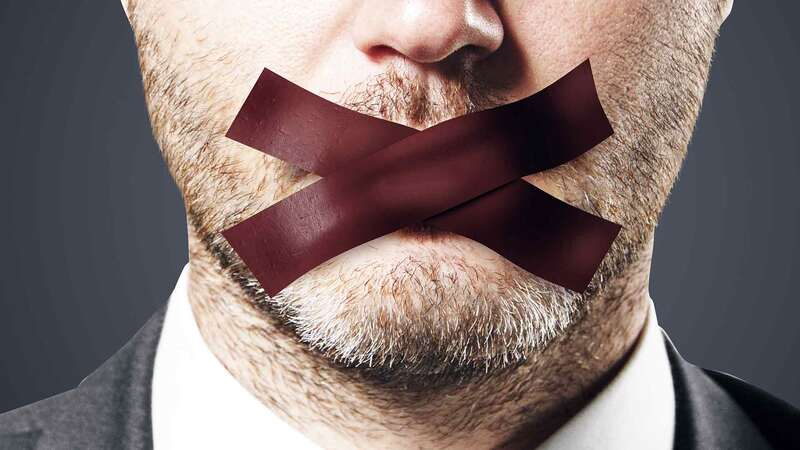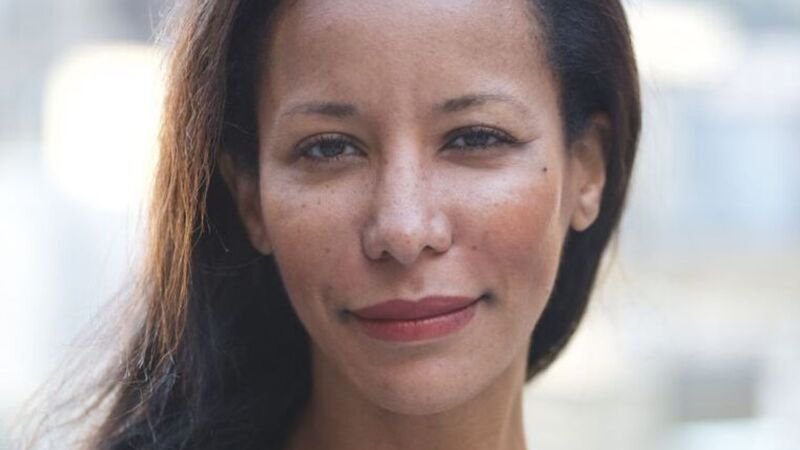You are viewing your 1 free article this month. Login to read more articles.
Publishers’ development of Black writers questioned as data shows bestseller wane
In exclusive research undertaken by The Bookseller, data shows the number of bestselling books by Black authors has fallen after encouraging signs in the wake of Black Lives Matter.

Melina Spanoudi is a reporter at The Bookseller. Kiera O'Brien is the charts editor.
Leading figures in the trade have questioned the industry’s commitment to publishing commercially successful Black writing after it emerged there has been a downturn in the number of bestselling Black-authored books published in 2022, as measured by Nielsen BookScan. The research, undertaken by The Bookseller, suggests that the wave of diverse publishing that followed the killing of George Floyd in summer 2020 has failed to result in the promised broadening of publishing’s output.
According to the data, Michelle Obama emerged as the bestselling Black author of 2022, with £1.37m earned across 102,162 books sold last year. The former First Lady’s The Light We Carry (Viking) brought in £1.2m alone, with her 2018 memoir Becoming (Penguin) bringing in a further £170,000 across four editions, including Becoming: A Guided Journal (Clarkson Potter/ Viking) and the young adult edition (Puffin).
The research looked at the top 1,000 highest-earning authors of last year, who collectively earned a combined £747m from 97.1 million books sold. The Bookseller has identified 25 Black authors among those 1,000, earning a total of £10.2m combined. This was not only a drop compared to 2021’s author count (32) and total value, but also of percentage share, with Black authors earning a combined 1.4% of the total—down from 2021’s 1.8%.
Reflecting on this outcome, Square Peg publishing director and founder of the Black Agents and Editors’ Group Marianne Tatepo explained that after she curated and edited the April 2021 publication of The Bookseller’s inaugural Black Issue, she had been told that the “15 Steps to Doing Better” one-pager was prompting acquisition conversations. “If that’s true, why does the bestseller chart look so much more staid than in 2020?” she asked.
Author and satirist Nels Abbey, who co-founded the Black Writers’ Guild, commented: “The Black Writers’ Guild was founded in part because we knew this was going to happen, we knew there was going to be a Black Lives Matter-era surge, and our fear was that it was not going to be sustainable. Or, it could be sustainable, but the odds were that it was not going to be sustained, so that puts culpability somewhere.”
Talking makes history
In the summer of 2020, following the murder of George Floyd, sales of Black-authored titles and anti-racism books soared up the charts. The Bookseller had reported that in June of that year, Reni Eddo-Lodge’s Why I’m No Longer Talking to White People About Race, published in paperback two years previously, became the first book by a Black British author to top the Official UK Top 50 in the Nielsen BookScan era.
Today’s data has brought this momentum into question, with many wondering whether the industry has lost some of its drive to address what appears to still be a pressing problem. Aimée Felone, managing director at Knights Of, talked about this issue in children’s publishing. “A load of authors were acquired from June 2020 all the way up to September 2021, when publishing woke up to the fact that Black Lives Matter,” she said. “But now I definitely feel as though the conversation has quietened and I feel that there’s a lack of continued energy, a lack of continued reflection or continued interrogation as to internal practices within the workplace or even in the acquiring process.”
The lack of progress, Felone suggested, may in part be attributable to tight marketing and publicity budgets leading to fewer opportunities for authors that particularly need such support. While small indies like Knights Of were being priced out of acquiring books by Black authors in the first place in 2020-21, Felone said that she did not see this level of money being put into publishing those authors.
She explained: “I know first-hand, speaking to Black authors who have been acquired, that a lot of the publication-week events have been left on them to do themselves; that they haven’t been guaranteed events at bookshops, that they haven’t had a tour created for them and that they have been left to devise them on their own, out of their own pocket, rather than having that support internally. I think sometimes début authors don’t know what is due to them, they just think, ‘This is what everybody else is getting, it’s this hard for everyone else,’ which is definitely not true either.”
This was echoed by Ellah Wakatama, editor at large at Canongate, who added: “I don’t see as much going into marketing and sales development for Black authors as there is into giving massive commissions for first-time novelists whose advances will not earn out and their second books will be more difficult. We know this as an industry, yet we keep on doing it. That’s bad author care.”
Sharmaine Lovegrove, m.d. of Dialogue Books, commented: “My perspective as managing director at Dialogue, as well as co-organiser of the Black Writers’ Guild and a member of the Black Agents & Editors’ Group, is that it was really bittersweet to watch so many authors’ work go for such high advances as I feared for the long-term strategy in this short-term investment. I want authors to be paid well for their work, as a business decision, not a political one, but I knew the work behind the scenes to engage audiences wasn’t being done in the majority of cases.
“Three years after the murder of George Floyd and after #BLM has been taken down from many publishing Twitter bios, most of those books are not reaching the stratospheres required from the high advances. This means a renewed lack of confidence and back to a ‘we have one’ attitude at many imprints across London publishing.”
The First Lady
In 2021, Michelle Obama’s husband Barack topped the chart, with the US’ first Black president bringing in £1.36m, the bulk of which was earned in the final two months of the year with his Bruce Springsteen collaboration Renegades (Viking). With an r.r.p. of £35, that title brought in almost £900,000. Barack Obama was joined by Brit Bennett, Will Smith and Marcus Rashford as Black authors who brought in over £1m in 2021—last year, only Rashford (and his co-writers) joined Michelle Obama in the millionaires’ club. Though an Obama once again topped the chart in value terms in 2022, Rashford knocked up a second year as the bestselling Black author for volume, with 205,205 books sold for £1.03m.
Not only were there fewer BookScan millionaires, but there were fewer Black authors in the chart’s highest echelons. In 2021, two authors, Barack Obama and Rashford, charted in the top 100, and six did in the top 250. Last year, no Black authors hit the top 100—Michelle Obama scored 106th place. Only Rashford joined her in the top 250, with combined sales from his various titles putting him at 176th; Rashford’s work with his two co-authors is filed separately through BookScan.
Children’s authors Malorie Blackman and Rachel Renée Russell chart between the top 300 and 500, as do Booker Prize winner Bernardine Evaristo, US Navy Seal turned self-help guru David Goggins and Costa First Novel Award winner Caleb Azumah Nelson. Chimamanda Ngozi Adichie, Bennett and Candice Carty-Williams joined fellow fiction author Nelson in the top 25 Black authors, with fantasy author Tracy Deonn hitting 24th.
Tatepo wondered whether a lack of feel-good Black stories could in part explain the outcomes of this year’s charts. “How many times has a non-fiction book by a Black writer that didn’t strictly revolve around their experience of racial trauma been fêted?,” she asked.
She added: “What is it UK consumers want from Black media? How many non-fiction ‘books of the month’ have been by Black writers since 2020? Who is topping non-fiction awards lists? Has UK academia made more tenured space for Black people?”
While several major publishers declined or were not able to comment for The Bookseller’s deadline, Maura Wilding, communications director at Hachette UK, said: “As an industry, we all have work to do to ensure more Black writers are hitting the bestseller lists and their experience of being published is a positive one. As with all our publishing, we create strategies and campaigns designed to match, and ideally exceed, ambitions shared with the author on acquisition.
“We know that to deliver the very best publishing, we must understand all readers, and last year, we invested in industry-leading consumer insight focused on the reading and book-buying behaviour of Black readers. This vital data is informing every step of publication, from what we acquire, how we promote it, to how and where we sell our books.”
The Black Writers’ Guild has created a framework to measure the marketing spend given to Black authors and is working through it with the Publishers Association. It is also surveying Black authors to explore the outlook of marketing spend today, the results of which will be discussed with publishers in months to come. “We want to work to ensure that Black writers consistently get opportunities to become culturally and commercially significant,” Abbey said.

